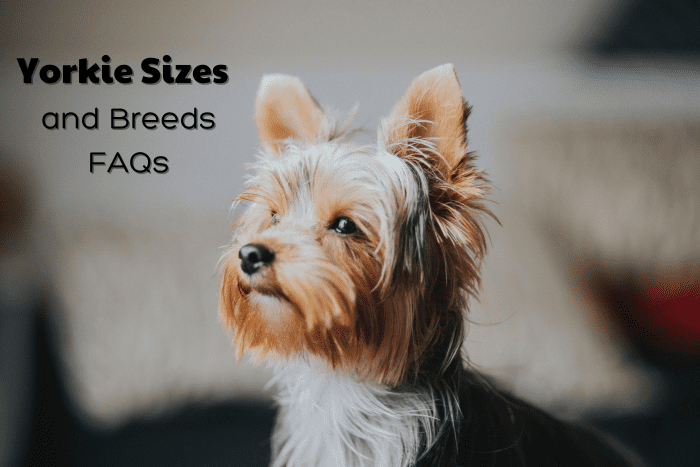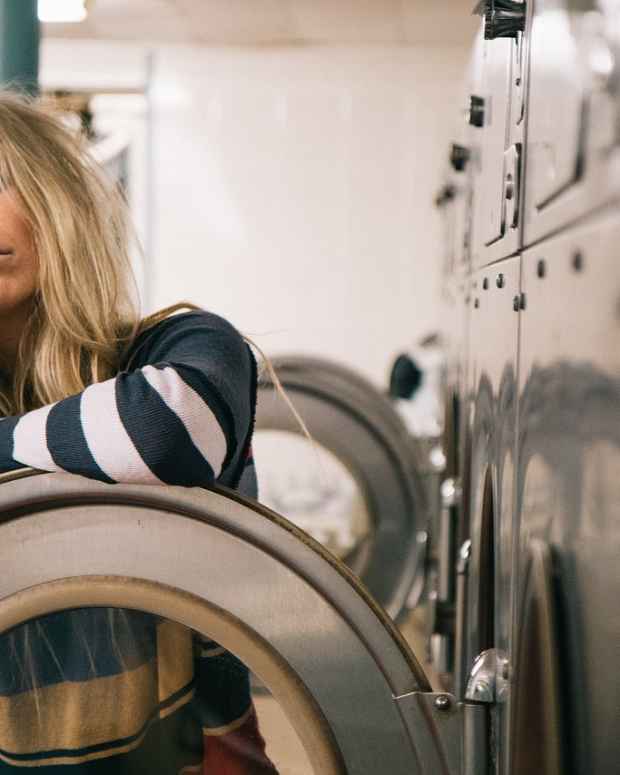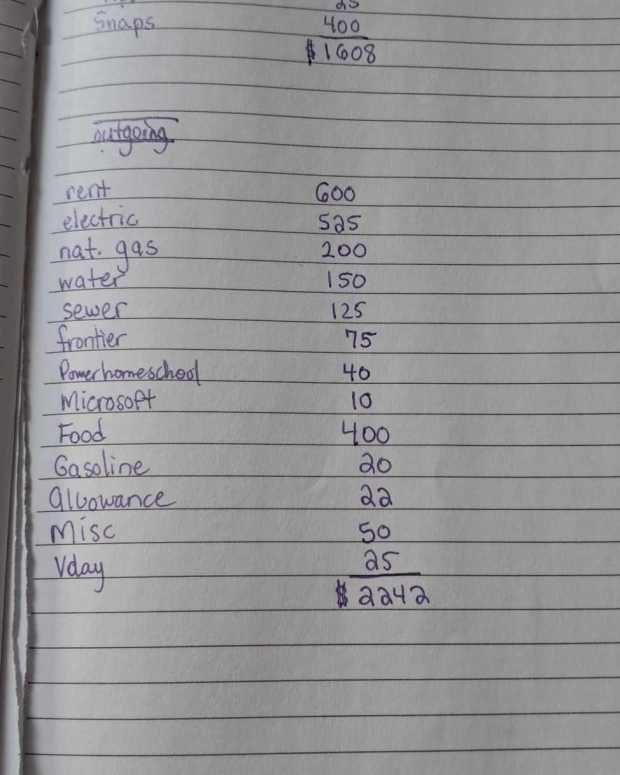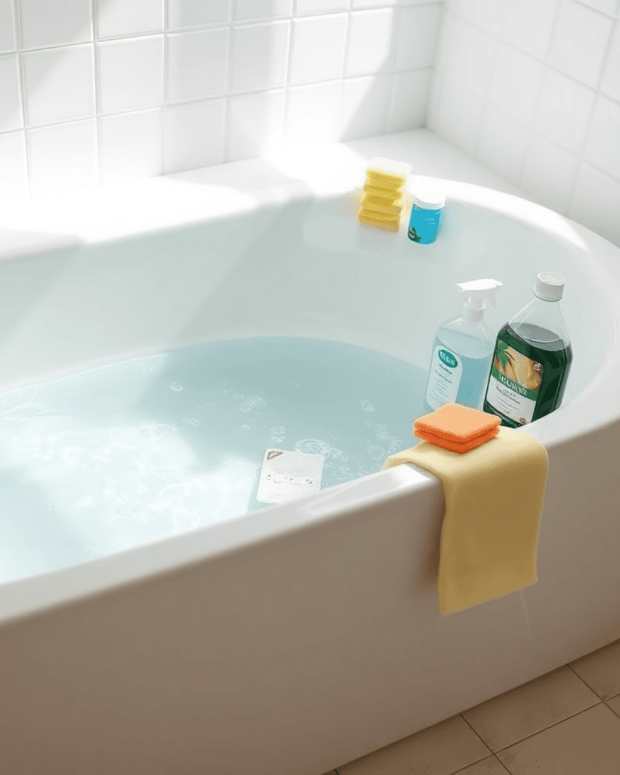Yorkie Sizes: Giant, Standard, and Teacup Yorkshire Terriers
What Are the Different Sizes of Yorkies?
Yorkies are fun, spunky dogs with big personalities and are characterized by their glossy black and tan coats with gray highlights, prick ears, and straight fur. They originated in Yorkshire, England (in the 19th century), and have even been used to develop other popular breeds such as the ever-famous Silky Terrier. These dogs are loyal to their owners and are well known for being rather "yappy" at times.
Few people realize that this breed comes in multiple sizes. You might be wondering what the breed standard is and what additional sizes of puppies are available. Here are the three Yorkshire Terrier breed sizes that most breeders have available:
- Giant (big/large)
- Standard
- Teacup (small)
How Big Do Yorkies Get?
This breed comes in several sizes and owners often want to know how big their dog will get.
In This Article
- What Is the Standard Size of a Yorkie?
- Giant Sizes: Why Is My Yorkie So Big?
- Small (Teacup)
- At What Age Are They Considered Full-Grown?
- Do Their Coats Turn Different Colors?
◦ The Puppies Change Colors - Personality, Appearance, and Breed Traits
- Yorkie Temperament
- Common Health Problems in the Breed
◦ Portosystemic Shunts
◦ Tracheal Collapse
◦ Dental Issues
◦ Luxating Patellas - How Much Do They Cost?
- Why Do Yorkies Stink?
- Tail Docking: Do Yorkies Have Short Tails?
What Is the Standard Size of a Yorkie?
The standard Yorkshire Terrier is a maximum of 7 pounds (3.2 kilograms).
- Height: 7–8 inches
- Weight: 7 pounds
Breed standards are set by the AKC, and registered breeders have to abide by these guidelines. Keep in mind that these are show standards, and these dogs have a trackable lineage. Anyone claiming that their dogs are "show quality" without the paperwork to back it up is not being honest, so do your research before buying a puppy.
Giant Sizes: Why Is My Yorkie So Big?
Giant Yorkies are over 9 inches in height and over 7 pounds in weight (if not obese). Some owners report 14-pound dogs that are in good health and physically lean. This size is not the breed standard, but these dogs tend to be healthy and may even be in better health than their smaller family members.
Small (Teacup)
Teacup Yorkies are under 4 pounds (the former cut-off by the AKC). When purchasing a teacup Yorkie, you must do your research on the breeder. Inbreeding can lead to numerous health issues and will be costly for you and uncomfortable for your dog down the line. A breeder should be breeding for health first and aesthetics second. Be suspicious of "teacup Yorkie puppies for sale" ads as a breeder may not be responsible or have the best of intentions.
Some toy sizes appear "small" due to underlying health issues (portosystemic shunts mentioned below) and selective breeding. Not to mention, their bones fracture very easily.
At What Age Are They Considered Full-Grown?
Yorkies stop growing in height and weight at 4 years of age and should match the breed standard of under 7 pounds (3.2 kilograms) in weight and 7–8 inches in height (no more than 9 inches at the shoulder).
Do Their Coats Turn Different Colors?
There are four designated colors for this breed:
- Blue
- Black
- Gold
- Tan
The underparts of the dog—the throat, chin, belly, and paws are typically bronze (golden)—and the nose and ears may be accented in this coloring. Some Yorkies are even described as a "cream" color.
The Puppies Change Colors
Puppies are typically born with darker coloration (your standard black and tan), and as they age—around 2–3 years—may turn tan and blue (diluted black).
Personality, Appearance, and Breed Traits
Yorkies have a beautiful, shiny, soft coat, and anecdotal evidence suggests that they are hypoallergenic as they don't shed much. They grow out of their puppy coat over the course of three years and finally settle into their adult coat colors. They are adorable little dogs and are known for the following:
Yorkie Temperament
- Curious
- Social and inquisitive
- "Yappy" and territorial
- Quiet when content and secure
- More suited for adults (over the age of 10)
- Uncertain around children
- Easily trained
- Smart
- Responds well to praise
- Travel well
Common Health Problems in the Breed
Like any purebred, Yorkies are prone to several health issues and generally die from congenital disease complications (the 4th leading cause of death for 1-year-olds).
Portosystemic Shunts
This condition is an unfortunate one in which the portal vein, responsible for delivering blood to the liver for purification, is malformed and sends blood that has not been purified directly to the major organs. This condition requires surgical intervention. Symptoms include the inability to thrive, vomiting, diarrhea, weakness, small stature, and behavioral issues.
Tracheal Collapse
This condition is extremely common in toy breeds and results from the weakening of the tracheal rings. It's characterized by coughing, difficulty breathing, and secondary lung diseases. Yorkies with this condition may require surgery, but it can be managed with special leads and harnesses that do not put pressure on the trachea.
Dental Issues
Yorkies tend to retain deciduous teeth, and their petite mouths often lead to bad breath, tooth overcrowding, and the need for intervention via extraction, etc. Brushing your dog's teeth regularly will help to reduce superficial issues, but overcrowding can only be resolved with extractions.
Luxating Patellas
Luxating patellas are quite common in this breed. They are first noticeable when the dog begins to "skip" as it walks or runs. It is a genetically inherited condition that results from a shallow patellar groove. The condition leads to lameness and may cause pain and discomfort. Severity ratings range from 1 to 4, 4 being the most severe and requiring surgical intervention. Most dogs will be scaled at 1 or 2.
How Much Do They Cost?
A Yorkshire Terrier puppy from a registered AKC breeding will cost between $1200 and $1500. Seriously consider looking into adoption and finding a breed rescue in your area—sometimes animals are surrendered because an owner passes away or an owner has to move. You can both save a life and save money—a win-win.
Why Do Yorkies Stink?
Yorkies are prone to skin conditions—as are all purebred dogs—and often develop dermatitis and dry, scaly skin, but health conditions like hormone imbalances can also cause problems and odor. It's important to work with your veterinarian to rule out underlying medical issues. They may recommend putting your dog on a hypoallergenic diet or incorporating a supplement like fish oil to help with skin and coat conditioning.
Tail Docking: Do Yorkies Have Short Tails?
Yorkie tails are traditionally docked. This is a controversial procedure that is done for aesthetic reasons within the first few days of a puppy's life. Historically, tail docking was performed to prevent injury in working dogs, but most Yorkshire Terriers to this day are house dogs.
The American Veterinary Medical Association describes it as a "cosmetic procedure," and there are many who oppose it, while the AKC considers undocked tails to be a "disadvantage." The procedure involves the severing of the tail with or without anesthesia and it does cause pain for the puppy. Numerous nerve endings are found in the tail—some veterinarians refuse to do it.
This article is accurate and true to the best of the author’s knowledge. It is not meant to substitute for diagnosis, prognosis, treatment, prescription, or formal and individualized advice from a veterinary medical professional. Animals exhibiting signs and symptoms of distress should be seen by a veterinarian immediately.
© 2019 Laynie H
Comments
Patricia on August 08, 2020:
My Yorkie is a giant Yorkie. He is 30lbs and stands almost 2 feet tall. If I was to ever get another Yorkie I would want it to be as big as him.
Dave Jacques on August 02, 2020:
Looking for giant Yorkie pup. Mine passed away 3 months ago @ 14 1/2 .
Wooflet on June 22, 2020:
Not exactly true on this page. I have always had standard yorkies. They are what most people think of as big yorkies or giant yorkies. They are healthier, they are as nature intended. Teacups are inbred to get that small size. Yorkies great ,they don't moult, they r not lickie. A standard yorkie or giant Yorkie is perfect. I would never want a small one! Giant yorkies are still naughty and loveable. However, u save on vet bills cos u have a more natural dog! If u want a bigger Yorkie standard is the way to go. The standard yorky is the natural size!
Laynie H (author) from Bend, Oregon on September 03, 2019:
Liz—I am sorry to hear about your friend's Yorkie—sounds like collapsing trachea issues or maybe related to dentition. Angelladywriter—agreed, they are adorable!
Angelladywriter on September 02, 2019:
They are so adorable no matter what size they are.
Liz Westwood from UK on September 01, 2019:
We had friends whose Yorkie ended up with breathing problems. He was a well-loved member of the family.






















